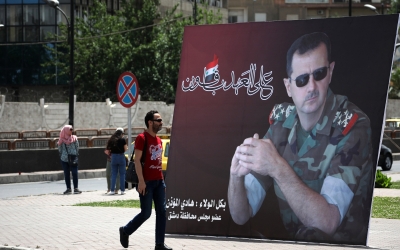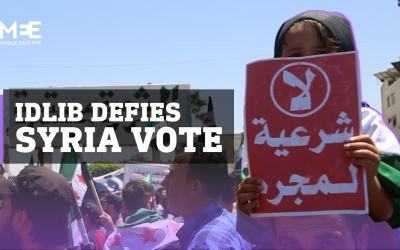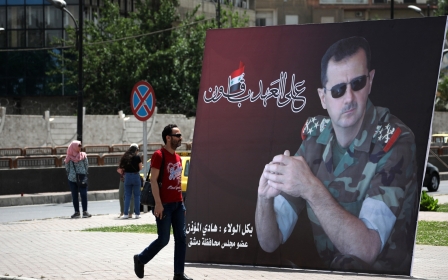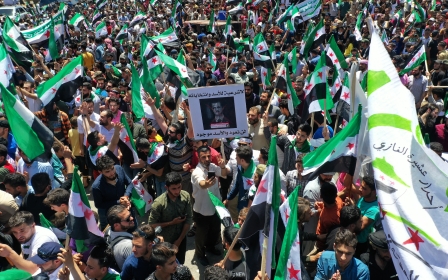Syria: Assad sworn in for fourth term after controversial re-election
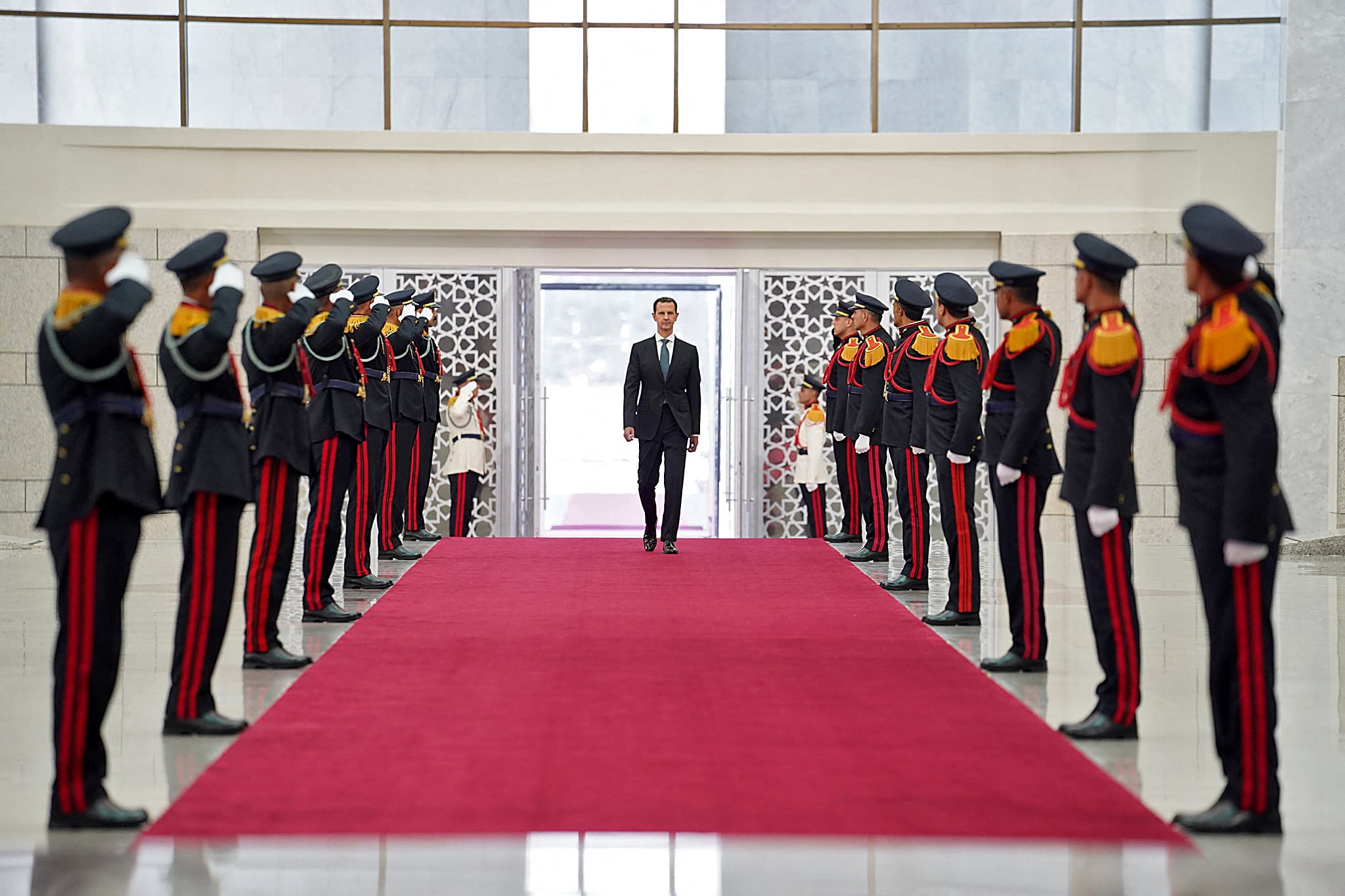
President Bashar al-Assad took the oath of office for a fourth term in war-ravaged Syria on Saturday, moments after pro-government forces reportedly killed several people, including three children.
Assad officially won 95 percent of a vote in May that was largely dismissed abroad. It was the second such poll since the start of a decade-long civil war that has killed almost half a million people and battered the country's infrastructure.
Shortly before the ceremony, rockets fired by pro-government forces killed six people, including three children and a rescue worker, in the country's last major rebel bastion of Idlib, the Syrian Observatory for Human Rights said.
An AFP correspondent in the village of Sarja saw men work hurriedly to remove bodies from the rubble of a collapsed home, before carrying one away in a red blanket.
Assad, 55, was sworn in on Syria's constitution and the Quran in the presence of more than 600 guests, including ministers, businessmen, academics, and journalists, organisers said.
The elections "have proven the strength of popular legitimacy... conferred on the state," Assad said in his inauguration speech.
They "have discredited the declarations of Western officials on the legitimacy of the state".
On the eve of the 26 May election, the United States, Britain, France, Germany, and Italy said the poll was "neither free nor fair," and Syria's fragmented opposition has called it a "farce".
Assad was running against two obscure candidates, former deputy cabinet minister Abdallah Saloum Abdallah and Mahmoud Ahmed Marei, head of a small, officially-sanctioned opposition party.
Marei got 3.3 percent of the vote, and Saloum 1.5 percent, according to official figures.
Lebanese banks blamed
Assad takes his oath as the country faces a dire economic crisis.
More than 80 percent of the population live in poverty and the Syrian pound has plunged in value against the dollar, causing skyrocketing inflation.
In recent weeks, the government has hiked the price of petrol, bread, sugar, and rice, while power cuts can last up to 20 hours a day amid fuel shortages.
Nationwide, 12.4 million people struggle to find enough food each day, the World Food Programme says.
The Damascus government has blamed the country's economic woes on Western sanctions and a deepening crisis in neighbouring Lebanon.
Banks in Lebanon have for more than a year forbidden depositors from withdrawing their dollar savings, affecting Syrian clients.
"The biggest obstacle now is the Syrian funds frozen in Lebanese banks," said Assad, estimating them to amount to tens of billions of dollars.
China visit
Assad spoke as Chinese Foreign Minister Wang Yi landed in Damascus, Syrian state media said, in the first visit by a Chinese government official since a deputy foreign minister in early 2012.
Assad was first elected by referendum in 2000 following the death of his father Hafez al-Assad, who had ruled Syria for 30 years.
Syria's war has displaced millions of people since starting in 2011 with the repression of anti-government protests.
After a series of victories against various armed groups, Russian-backed government forces today control two-thirds of the country.
Assad pledged to wrest the remaining Syrian territory from "the terrorists and from their Turkish and American sponsors".
Middle East Eye delivers independent and unrivalled coverage and analysis of the Middle East, North Africa and beyond. To learn more about republishing this content and the associated fees, please fill out this form. More about MEE can be found here.


